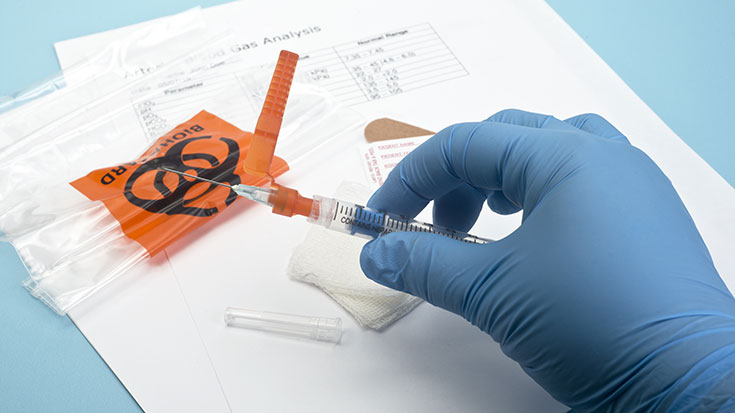
The respiratory care profession offers a wealth of opportunities for RTs who want to step beyond the bedside in the typical acute care hospital. One specialty that’s appealing to therapists interested in pulmonary function testing is respiratory diagnostics.
Is this an option for you? AARC Respiratory Diagnostics Section Chair Katrina Hynes, MHA, RRT, RPFT, answers your questions about working in this specialty —
How would you describe the diagnostics specialty to RTs who have never worked in the area?
Diagnostics are procedure-based practices where a patient’s performance and compliance often drive the data produced. Those data are then used to make patient care decisions. Certainly, there are procedures in certain pulmonary function laboratories (PFL) that do not necessarily require patient cooperation, such as ABGs, but in most cases interaction between the RT and the patient is critical. It doesn’t matter if you are testing their lung capacity, exercise tolerance, or titrating their oxygen dose, the RT must communicate effectively with the patient in order to achieve the desired result or outcome.
What are the educational, credentialing, and experience requirements for making the move to diagnostics?
Respiratory diagnostics is highly specialized. In my professional opinion, the RT is perfectly positioned to work in the diagnostic arena because of their training and education in pulmonary physiology and general knowledge of the diseases seen in the laboratory. However, that does not mean they can simply walk into a PFL and start testing the next day. Orientation, training, and demonstrated competency in the numerous procedures is needed to ensure quality results are achieved and reported to the health care provider. Every RT working in the PFL should challenge and successfully pass the NBRC’s CPFT and RPFT credentials to validate their competency in performing pulmonary diagnostic testing.
How does working as a diagnostician differ from practicing traditional respiratory care in a hospital setting?
Diagnostic patients are usually alert and awake when they receive care. As a result, the human interactions often influence the success of the test and the data produced. Diagnosticians often need to overcome communication, personality, and fear barriers before a test can be performed. This differs significantly from the traditional ICU RT, whose patients are often sedated and mechanically ventilated.
What opportunities for career advancement does the diagnostics specialty offer?
Diagnostic specialties allow respiratory therapists the ability to refine their knowledge and skills in a sophisticated level of care. Within those specialties there are leadership ladders, such as clinical specialists, lead roles, supervisory roles, educational roles, etc.
What are the biggest challenges and the biggest rewards of working in this specialty and why?
The biggest challenge is that specialty diagnostics is a niche career with often limited locations where vast portfolios can be offered. Respiratory therapists desire to be challenged. Working in a facility that doesn’t have the talent to expand the procedure portfolio could lead to boredom and employee dissatisfaction.
The greatest reward is working with patients and providing valuable information to a provider that directly affects the patient’s care. If you’re working in a PFL that performs exercise testing or bronchoscopy procedures, certainly your critical thinking and rapid response skills are highly utilized too.
What are the top 3-4 things you think an RT should consider before making the move into diagnostics and why?
- Are you a good listener and active communicator?
- Do you value quality and the impact quality data have on patient outcomes?
- Are you curious about pulmonary physiology as it relates to a patient’s disease process?
You can learn more about respiratory diagnostics and network with people already working in the area by joining the AARC’s Respiratory Diagnostics Specialty Section.





